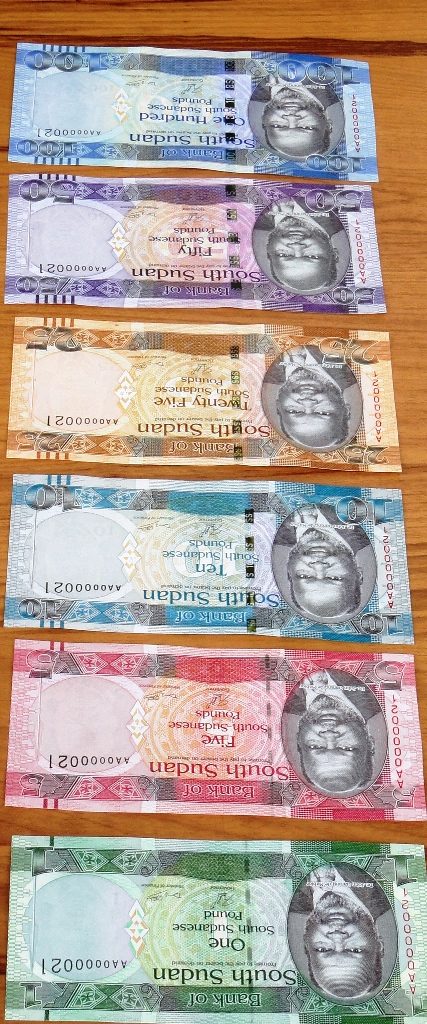Speculation by the market and ongoing payment of five months civil servants salary arrears are some of the reasons that have led to weakening of the SSP against the dollar
Central Bank Governor Moses Makur Deng
RICHARD SULTAN
The Central Bank of South Sudan is set to increase the amount of United States dollars auctioned as it fights to prop a falling South Sudanese pound driven partly by the clearance of a 5-months backlog of civil servants pay. The Bank will auction USD8 million up from USD5 million with a threat to increase the weekly auctions to $20 million. “We are releasing too much money into the system and that could increase the value of the dollar to the SSP,” Moses Makur Deng, Governor of the Bank of South Sudan said during a press conference Friday.
The pound has been in a free fall for a month – a trend now accelerated by government release of money to pay civil servants’ five months arrears – hitting 520 buying rate to the dollar last week, continuing a 3 month upward trend from 425 per dollar in March. “Speculation by the market and ongoing payment of five months civil servants salary arrears are some of the reasons that have led to weakening of the SSP against the dollar,” Makur said. “So in order to counteract that we have to increase the amount of auction of the foreign currency that we give to the market starting from next Monday we will release 8 million dollars every week five million for the banks and 3 million for the forex bureau.”
TARGET AUCTION: $20 MILLION A WEEK
The bank will monitor the trend of the pound for a fortnight and could increase the auction to USD 20 million in the next month in case the pound continues down wards. “We will watch the trend of the rates. If it persists, we will increase after two weeks to USD 13 million a week and we will increase further to USD 20m a week to make sure the dollar comes down” Makur noted.
It is doubtful whether the government can keep up the balancing act for long because its forex reserves standing is questionable. This is apparent from government failure to pay public servants for 5 months. Many extended families’ livelihoods depend on government employment of one or the other family member.
According to the governor, the government hopes to improve its reserves coverage by increasing oil production and strictly adhering to a memorandum of understanding between the Central bank, Ministry of petroleum and Ministry of Finance on transparency in oil sales. The lack of transparency has been a sticking factor in accessing donor funding from the west, pushing government to increasingly look to the Gulf countries.




